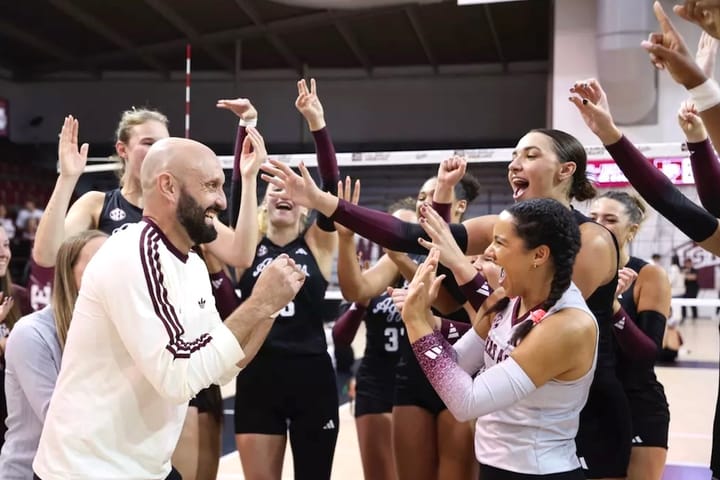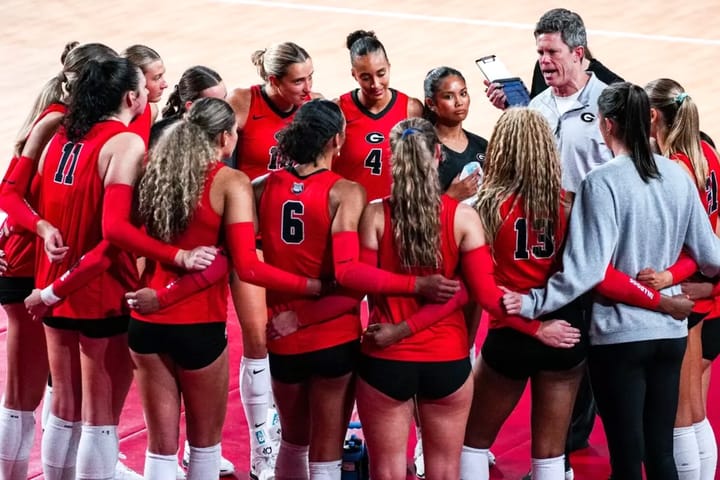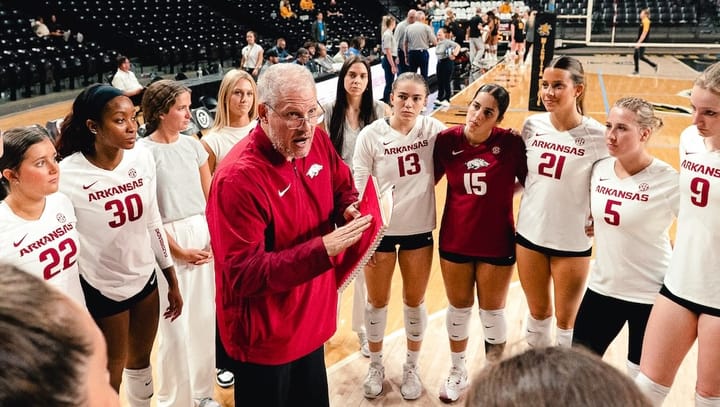97. Tom Black: What you seek isn’t in the winning.
Tom Black is the head coach of the University of Georgia’s volleyball team and a former U.S. Women’s National Team assistant who helped win a World Championship in 2014 and an Olympic bronze medal at Rio 2016.
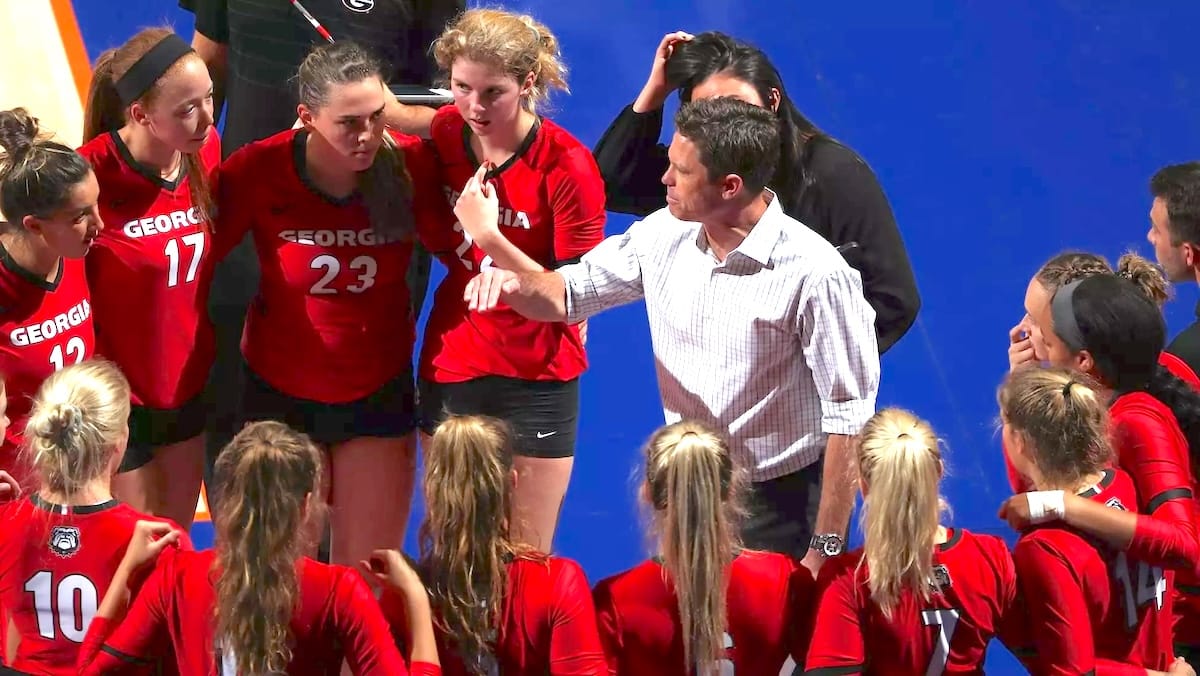
Tom Black played as an outside hitter at UC San Diego from 1993 to 1996, set several school hitting records, and was named Volleyball Magazine’s Small College Player of the Year in 1996.
After college, Tom coached the UC San Diego women's team from 2005 to 2009, guiding them to the NCAA tournament each season and earning Pacific Region Coach of the Year honors in 2006. He then spent seven seasons at Loyola Marymount, making three NCAA trips and reaching the Sweet 16 in 2015. Since 2016, he has led Georgia, steering the Bulldogs to three NCAA berths and consecutive 20-win seasons.
Coach Black has made his mark on the international stage, too. As a U.S. assistant from 2013, he helped the team win its first World Championship in 2014 and an Olympic bronze in 2016.
In 2019, he took charge of Canada’s women, leading them to the Challenger Cup title and a 2020 Nations League spot. Back at Georgia, he earned SEC Coach of the Year honors in 2022.
In this open and insightful conversation, Tom Black shares the experiences and ideas that have shaped his coaching journey.
Key takeaways from this article include:
- Reinforce core values in daily micro-moments to let culture take root
- Aim scouting at offense and serving where it moves the scoreboard fastest
- The one piece of advice he’d give his younger coaching self—and why it probably wouldn’t have worked
- How creativity and coaching overlap—and why you’re more creative than you think
- Can you enforce team values without making it about yourself?
- What’s the biggest time-waster in volleyball prep—and why do so many coaches still do it?
- and so much more...
We have 36 minutes of video interview (divided over 14 clips) with coach Black in this article. Enjoy!
Enter Tom...
Tom, when did it click for you that you wanted to become a full-time, professional volleyball coach? What was that trigger?
Well, a lot. For a long time in my twenties, I was balancing being a coach or being a writer. And honestly, it's not like a huge story. I remember running a drill for a high school team that I was coaching, and things were just clicking in a way that was kind of telling me that I should pursue it.
At the same time, I do think I was chickening out a little bit—like, coaching was safer. And so I think there was part of me feeling like I should go this route because it’s safer and acknowledged.
But I also remember that moment of running the drill and just feeling like I was kind of a part of something, and it was clicking.
So it was just a moment. It was LA Baptist. I was running a defensive drill in the San Fernando Valley. So I still remember that moment, you know? But there were a lot of reasons that I went down that path.
What advice would you give yourself as a starting coach? An advice that is so clear and logic for you now, but that you had to develop over the years.
The hard part with that question is, I know I wouldn't have listened. I think that's the tough part, I just wouldn't have listened. But who I am now, I probably would’ve tried anyway.
And I think there are two parts to that question, too. There’s what I would tell that person based on what I’ve learned, and then there’s also what that individual needs in the moment.
I’ll try to answer without going off on a tangent.
For instance, I think what I would’ve told that person is: there’s no amount of winning or championships that’s going to give you what you think it’s going to give you.
But I also think that, at that time, I would’ve wanted to listen. I would’ve tried. I just wouldn’t have understood it at the level I do now. So in a way, it’s almost not worth saying.
But I would’ve tried to convey that as deeply as I could.
What are bad recommendations you hear about coaching or training volleyball?
Well, I think we’re going backwards a little bit in coaching. I think the content of coaching has exploded, and the quality has gone down—and I think those two things are directly correlated.
And I’m not trying to be like an old geezer slamming social media, but there’s a lot of effort right now going into how I look, how I sound, how I’m presenting. Which is fine—that’s a part of coaching.
But there’s a rigor to coaching that’s diminished, in my opinion, compared to 20 years ago when you didn’t have social media.
Back then, if you wanted to learn how to coach, you had to read a book, go to a clinic, and have an in-depth conversation. Someone would scrutinize you.
And I’m saying this from experience. I can think of five coaches off the top of my head from 20 years ago who I vehemently disagreed with, but who were phenomenal coaches. I might not have agreed with them, but they would push back, they’d challenge me, and they had real reasons for what they were doing.
I greatly respected the depth. Even if I disagreed with their conclusions, I respected the rigor it took to get there.
I’m not seeing that as much now, except from people who are already part of that older generation. Because again, so much of coaching right now is about how I sound when I’m talking, how I look when I’m talking, how I’m being presented.
And the stuff I’m seeing on social media? I mean, just empirically, scientifically, it’s wrong. But it sounds good, it looks good, and it’s produced well. So it gets eaten up.
So I don’t even know where to start with that question, is kind of what I’m saying. I’m just... yeah. Just saying what I’m seeing.
Do you have a particular goal? Maybe a goal that you already reached or a goal that is so hard to reach that it gives you daily motivation?
I'm not driven; I used to be, but I’m not driven by a particular goal anymore. I mean, of course, I have goals for the program. But what still gets me excited is what the job provides on a daily basis.
Like, I still get fired up about trying to figure out a better way to design a practice—and then seeing someone get better because of it.
It could be me and an assistant coach, or just anyone in the program, but when that spark happens in the day, when there’s a little leap forward, it gets me.
Whether it’s from the way practice was designed, or a meaningful conversation, or both coming together in the same session… those are the things that still fire me up.
I don’t know if I have specific goals, exactly, but I feel connected to that process. I’m shooting for that every day. So maybe it’s more of a target than a goal.
Of course, we do have goals. But I’d be lying if I said that’s what gets me out of bed. It’s the tiny sparks, those little moments that come from the work we’re doing, that still make this job feel like a cool thing.
Team culture. Do you have any methods that you return to every new season? It's a big question, but you can take your answer wherever you want to take it.
I'm not very good at long answers. I think, for us at least, there are team rules, there are team values, and then there’s the culture that’s created because of all that.
The rules, I mean, I think most coaches, way better than me, would agree with this, but I had a coach early in my career who said, “Hey, do you want to be a coach, or do you want to be a cop?” And I said, “I want to be a coach.” And he said, “Okay, then keep your rules small.” That always stuck with me.
It was Duncan McFarland; he was a great player and a great coach. And I think the rules have to be simple. The more rules you have, the more time you’ll spend enforcing them. And that’s not what we’re trying to do. We’re not cops.
So for me, I’ve got three or four core rules, max.
Then there are the values. And I can only speak for myself here, but for me, it’s about introducing those values and then, throughout the season, constantly pointing to them: “That’s an example of it.” “That’s not an example.” Over and over. And that’s just life. That’s how they get stronger.
And then, finally, that’s where culture comes in.
I think of it in layers: rules, then values, and then culture. And culture is just the result of all of it, the culmination of all the inputs, all the interactions, all the days stacked together across a season.
Honestly, I feel a little anxious the first time I give a talk on a value. Because if I don’t feel at least a little vulnerable when I talk about it, it’s probably not the right value.
But even then, the talk isn’t the most important part. What really matters are those hundred little interactions during practice. That’s where it becomes real, or it doesn’t.
That’s where the culture either forms or it doesn’t.
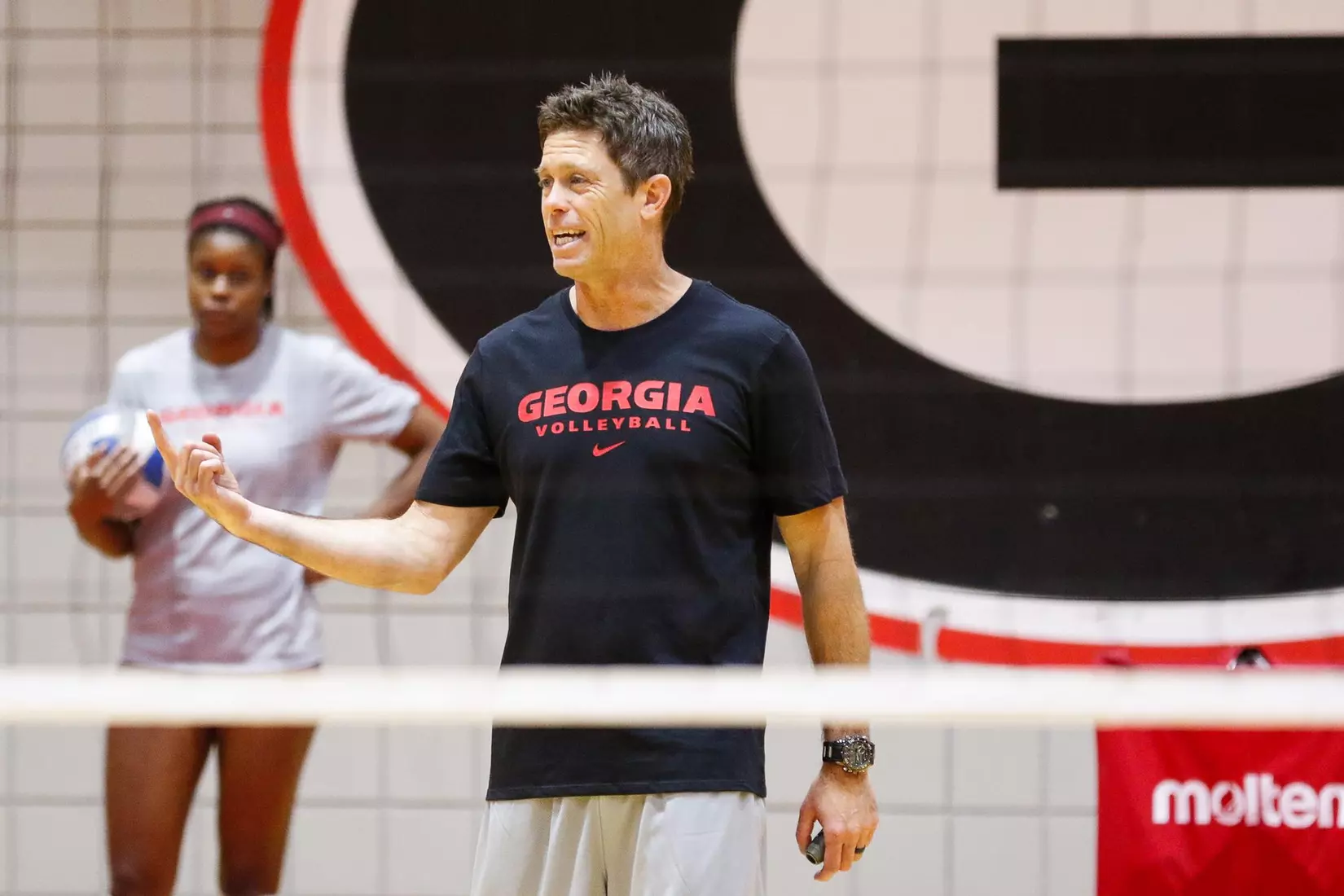
Matias: Do you expect your assistants to call out and reinforce these values whenever they notice them, or do you prefer to handle that yourself?
Is everyone on the staff free to point things out and clarify?
Or is that mainly your role?
No, I think it’s two parts to that.
First, for sure. The better I am at understanding our values and how they’re implemented, and the better I am at communicating that, the better my assistants will be, the better the players will be... and on and on. No question.
But the second part is this: I do think there’s a slippery slope.
We all have egos, we just do. And there’s a part of competitive sports that I don’t think you can be great at unless you have some kind of ego. There are a lot of ways that can show up, but it has to be there in some form.
